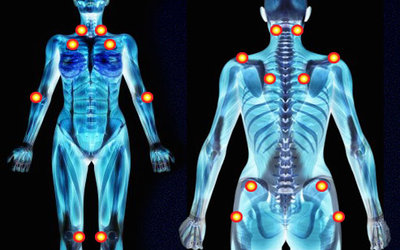The Secret Life of Fibromyalgia: What Causes This Disease?
If the truth must be told, right now no one really knows what causes fibromyalgia. Some medical experts believe that it’s a type of autoimmune disease where the body’s immune system mistakenly attacks its own cells. Other people theorize that microscopic tears in the muscles are what cause the pain and stiffness of the disease. These tears are caused by even the mildest sort of exercise, or even everyday activities and don’t affect other people. Other professionals believe that fibromyalgia may have a genetic component, which means it may be at least partially inherited. And some people develop symptoms after a trauma or after an illness.
Who Gets It?
Most of the sufferers of this mysterious disease are women of middle age. They not only suffer from pain in the “tender points” of their bodies but also suffer from insomnia, headaches, dysmenorrhea, numbness, and tingling in their extremities, cloudy thinking, mood problems, memory problems, and stiffness in the mornings. But even these symptoms can flare up and then become quiet for months. These women often find themselves going from one doctor’s office or clinic to another to find a remedy for fibromyalgia. The disease as yet has no cure, but it can be managed.
Women who do have autoimmune diseases like rheumatoid arthritis, are more at risk for getting fibromyalgia. They also seem to be more at risk if they suffer from depression, anxiety, and irritable bowel syndrome.
How Is It Diagnosed?
There’s no definitive test for fibromyalgia, but it can often be inferred by the tender points that cause the patient pain if pressure is put on them. These are places that start on the neck, and migrate down to the legs. They’re found on both sides of the patient’s body. One good thing about fibromyalgia is that it doesn’t lead to complications, or other life-threatening diseases. It is simply painful, and frustrating to endure.
How Is It Treated?
The nature of fibromyalgia can make it difficult to treat, though medical supplements can be given to the patient to ease the discomfort and the stiffness. Some doctors prescribe NSAIDs like ibuprofen or other pain relievers such as acetaminophen or Ultram. Antidepressants can also help to elevate the patient’s mood, and at least help her to get a good night’s sleep. Some doctors have found that prescribing drugs for epilepsy sometimes help. Vitamin C, which helps the body produce collagen, as well as Vitamin A and the B complex vitamins also help.
Though the causes of this disease remain elusive, it’s hoped that ongoing research will one day find both the cause and the cure.


Comments are closed.